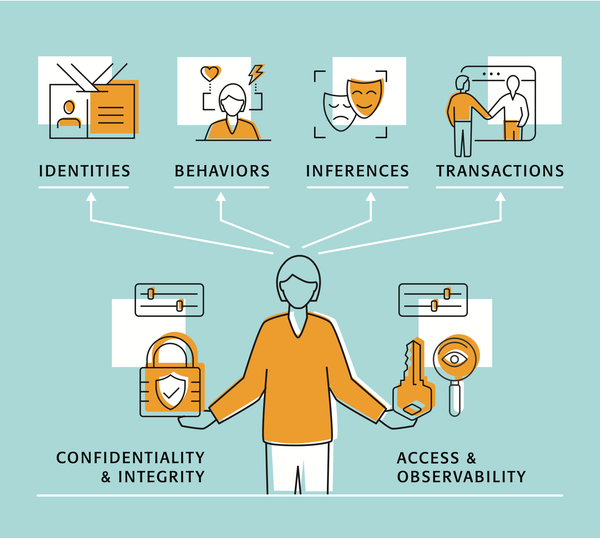Privacy Prospectus 2025
I'm curious whether new ministers' mandates will genuinely champion Canadians' digital autonomy and privacy.

New Ministers to Helm Privacy Legislation: Will Innovation and Data Monetisation Trump Canadians' Digital Rights?
As the 45th Canadian Parliament prepares to convene, I wonder who will be in charge of updating Canada's privacy legislation. This will likely fall to newly appointed ministers. I'm curious whether their mandates will genuinely champion Canadians' digital autonomy and privacy or if these fundamental rights will be subordinated to the government's commitment to fighting a trade war (including digital trade), building new trade partnerships, and supporting businesses seeking profit in the global surveillance capitalism markets for personal data.
Prime Minister Mark Carney's cabinet, revealed on May 13, 2025, has placed responsibility for the digital and industrial files, and by extension federal privacy legislation, with:
- The Honourable Mélanie Joly, Minister of Industry.
- The Honourable Evan Solomon, Minister of Artificial Intelligence and Digital Innovation.
While these appointments suggest a focus on modernising Canada's approach to the digital economy, there is room for scepticism about where their true priorities will lie. The emphasis on "Industry" and "Artificial Intelligence and Digital Innovation"—especially within a governmental context focused on aggressive trade strategies and fostering participation in "global surveillance capitalism markets"—raises concerns that the primary objective will be to streamline data flows for businesses and enhance Canada's competitive position in data-driven industries. Genuine privacy protections and digital autonomy for citizens could become secondary, framed perhaps as necessary but ultimately flexible conditions to enable broader economic and trade ambitions.
The division of responsibilities might create a dynamic where the push for economic leverage through data under one minister (or both) overshadows the more nuanced and rights-protective considerations. The crucial test will be in the substance of forthcoming legislation: will it prioritise empowering Canadians, or will it pave the way for more seamless data exploitation in the name of national economic interest and international trade competitiveness?
Formal oversight bodies will play their roles, but their capacity to meaningfully counter a strong governmental push towards data monetisation for trade and economic supremacy is questionable:
- The Office of the Privacy Commissioner of Canada (OPC): As an independent Officer of Parliament, the OPC is tasked with protecting privacy rights and overseeing federal privacy laws. However, its influence is largely through recommendations and reports. In an environment where digital trade and participation in global data markets are paramount, the OPC’s calls for robust, citizen-centric privacy safeguards could be easily downplayed or selectively implemented if perceived as impediments to the government's economic agenda.
- Parliamentary Committees: Parliamentary committees will scrutinise privacy bills, though a cynic might point out that the (almost) majority of the Liberal government and the (likely) weak resistance to data monetisation that will come from the Conservatives will make that scrutiny performative rather than substantive.
- A committee focused on industry and technology, likely a successor to the Standing Committee on Industry and Technology (INDU), will examine legislation. Given its traditional focus, its recommendations may heavily favour innovation and business facilitation, aligning with a strategy to boost Canada's role in digital trade and data markets, rather than championing stringent privacy rights that might complicate such goals.
- The Standing Committee on Access to Information, Privacy and Ethics (ETHI) has a direct mandate over privacy. While ETHI could provide a platform for a more rights-oriented discussion, its ability to significantly alter legislation driven by strong economic and trade imperatives is limited. Its recommendations might be noted, but potentially overridden if they conflict with the overarching goal of positioning Canada favourably in a globalised, data-driven economy that often operates on principles of surveillance capitalism.
Canadians have witnessed previous attempts to overhaul privacy laws, such as Bill C-27, falter. The concern now is that any new legislative initiatives from these ministries, under a government focused on trade wars and global data commerce, will be engineered primarily to serve Canada's economic and strategic trade interests. This could mean that Canadians' "digital autonomy" will be defined by what serves the state's economic strategy, rather than by genuine individual control over personal information. The upcoming throne speech and parliamentary session will reveal whether privacy will be a foundational right in Canada's digital and trade future, or a negotiable concession in pursuing broader economic and geopolitical objectives.


